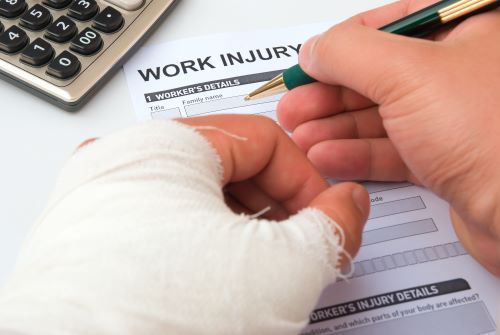Describe Three Ways to Narrow Down Qualified Personal Injury Lawyers
If you search for lawyers in your local area, your search results will show dozens, if not thousands, of possible contacts. How do you narrow down a list of potential lawyers to determine which ones are qualified? It’s an important question for any type of lawsuit, especially for personal injury cases. Considering how complicated these can be, clients naturally want to know they can trust a lawyer to look out for their best interests. Read on and we’ll describe three ways to narrow down qualified personal injury lawyers.
1. Identify Potential Lawyers
The first way to narrow down qualified lawyers is to come up with a list of potential candidates. You can start by asking friends and family for any referrals. Even if they don’t have relevant experience themselves, they may know someone who went through a similar legal battle as yours. Have them describe why the names they recommend should be on your narrowed-down list of qualified personal injury lawyers.
One very helpful resource to check out is your local bar association. Because this is a personal injury case, you may also want to inquire for recommendations from certain medical professionals.
The internet can also be an incredibly valuable tool. If you’re really starting from scratch, search for attorneys in your area, and then by personal injury specialty. You may also be able to find some qualified options through the news, mailers, radio, or other media.
See if there are any online reviews or testimonials you can find as well. How do others describe their experience with the personal injury lawyers? Do any of the attorneys come across as properly qualified in the descriptions?
And keep an eye out for any negative reviews. If a lawyer sounds too good to be true, there could be an unsatisfied previous client who is trying to warn others.
2. Do Background Research
Once you have a list of candidates, do some research on their backgrounds. This can be described as looking at their education, how long they’ve been practicing, their general reputation, and so forth.
Now, let’s describe some other effective ways to narrow down qualified lawyers with good reputations.
- Find out how long they have been practicing law, and personal injury law specifically.
- See if they have earned certain accolades and/or won awards.
- See if they have published any case studies.
- Do they have an online bio that lays out their most impressive accomplishments?
- Can you find any disciplinary actions that involve the individual lawyer? What about the law firm they work for?
While these are some general ways to narrow down qualified lawyers, don’t forget how important the personal injury specialty is. In case the laws change, you want to make sure to choose a lawyer who stays informed of all the latest developments.
Likewise, you should also make sure that the attorneys are as knowledgeable about the medical field as they are about the law.
Furthermore, you should try to make sure they have plenty of experience, not just with medical-related law, but also with your specific type of personal injury case.
3. Talk to the Personal Injury Lawyers
Recommendations and research are highly effective, but another way to narrow down qualified candidates is to talk to the lawyers themselves. This should be done once you’ve narrowed down the list using the two ways above. You don’t want to waste your time by talking to any lawyer in your area. That being said, however, you should be meeting with at least a few candidates. And be sure to come prepared with the necessary paperwork and information. This can include correspondence, medical bills, and any reports.
Ask questions
Make sure that you are asking the right questions. While you’ve ideally done some research ahead of time, you should still ask some of those basic questions to see how the attorney responds. There could be something important that wasn’t found in your online research.
To make sure the attorney is qualified, ask how many personal injury cases they’ve tried. How many of those cases have they won? Ask them about their most recent personal injury case and what the outcome of it was.
You should also be asking questions about your specific case. These can include:
- What kind of personal injury law experience do you have?
- Have you handled a similar case before?
- Do you typically represent individuals or insurance companies?
- How long do you expect the timeline of this case to be?
- What would be your strategy for this case?
Discuss fees
These aren’t the only things you should be inquiring about. While some people get nervous discussing payment, it can be imperative to ask about the fees. Here are some of the questions you can ask about fees to narrow down qualified lawyers below:
- Is the initial consultation free? If not, how much will I be charged?
- Will I be provided with a list of fees?
- How many people will be working on this personal injury case? How many different services will be involved? Will there be individual fees for every single one?
- What is the ballpark anticipated cost overall, fees included?
If the individual you’re speaking to cannot answer these questions or does not provide satisfactory answers, then consider it another way to successfully narrow down your list of qualified lawyers.
The above tips describe three ways to successfully narrow down qualified lawyers, setting you on the path to find one you can fully rely on. But the best way to narrow down qualified personal injury lawyers? Choose one of our experienced, dedicated, and trustworthy attorneys here at Warren Allen LLP. We are sure our attorneys will provide the best legal advice and representation available in the Pacific Northwest, which we’ve served for over 50 years.
You can find more information on Warren Allen LLP, our specialties, and our attorneys on our website. Our blog includes helpful legal tips and expert advice. Have questions for us? Don’t hesitate to reach out. You can find our contact information on this website as well.









